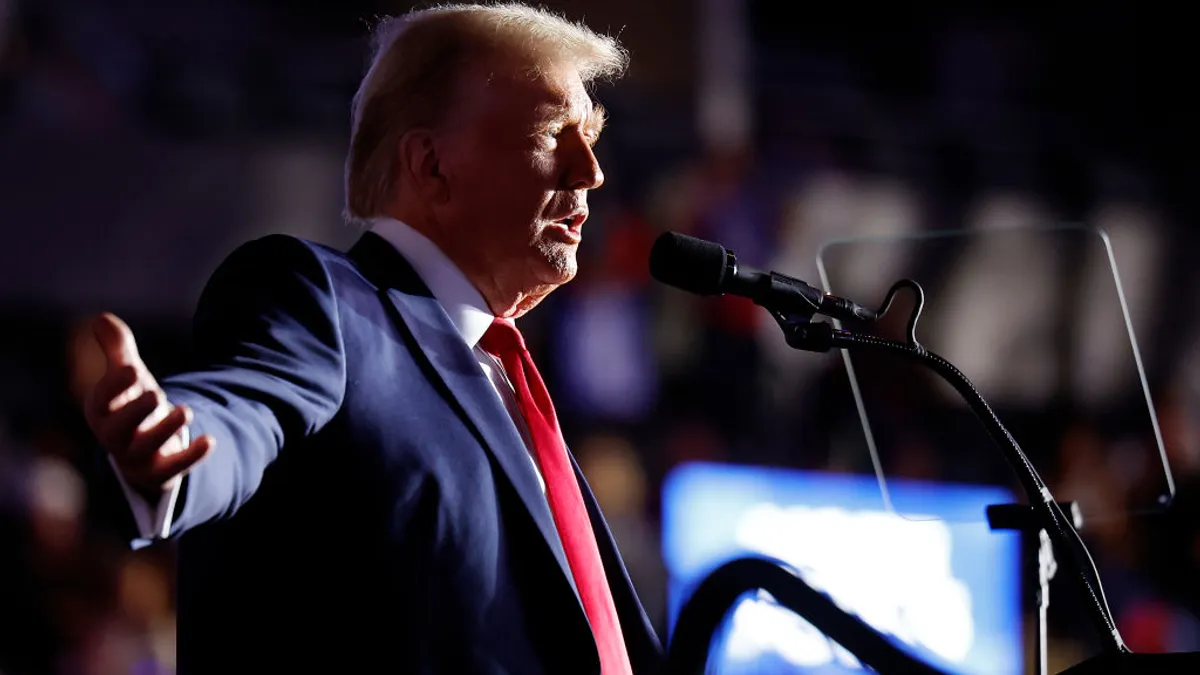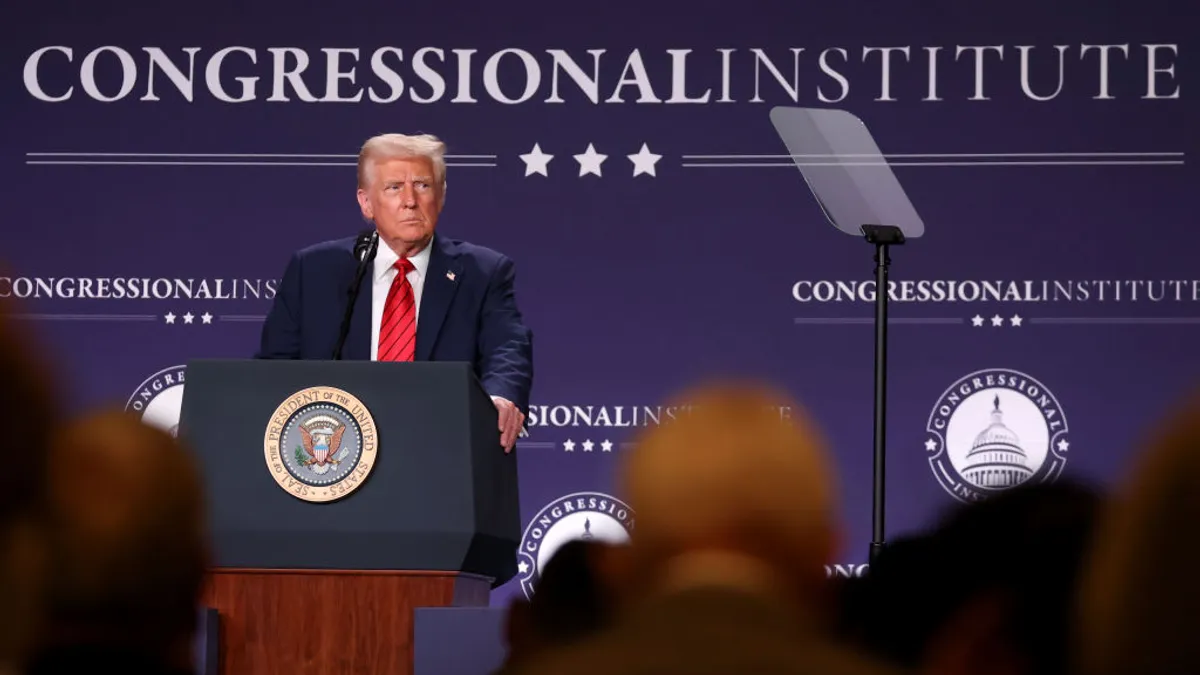Hayley Matz Meadvin is an executive vice president of communications at Precision Strategies. She previously served as senior adviser to the U.S. education secretary and chief of strategy and communications for Chicago Public Schools.
Republicans railing against the U.S. Department of Education is a tale as old as time. Ronald Reagan vowed to abolish it, and since his presidency there’s been no shortage of Republican legislative and presidential candidates who have called for it to be eliminated. President-elect Donald Trump also announced his desire to eliminate the department, a policy goal he has repeated since his victory in November.
With Republicans in control of the White House, House and Senate, it’s not outside the realm of possibility that this drastic proposal could come to fruition.
But Trump prides himself on standing outside the political orthodoxy of either party. Eliminating the Education Department feels more like an old-school Republican trope, and there’s a better play the president-elect can make. As a master of branding, he should see the opportunity to rebrand the Education Department instead of eliminating it.

As a senior adviser to the U.S. education secretary in the Biden administration, I’ve seen firsthand the department’s potential to help drive America’s economic competitiveness. Trump should reimagine the Education Department as the Department of American Competitiveness.
The driving force behind Republican opposition to the Education Department has always been the fear that it would infringe on states and localities' ability to set their own academic curricula. Local control over K-12 education is a bedrock conservative value. However, over the Department’s decades of existence — under both Democratic and Republican administrations — this fear has never been realized.
The department’s remit has remained consistent over the years, setting a national vision for our schools and students. It often provides carrots and sticks to help them get there, from No Child Left Behind under President George W. Bush to Common Core under President Barack Obama. The agency also plays a key role in some critical areas, including supplemental funding for underserved school districts and special education programs, and administering student loans for college students.
Eliminating the Education Department would be symbolic more than anything else. Whatever you think of President-elect Trump, he has branded himself as a catalyst of sweeping transformation. Transforming the country and competing on a global scale requires, among other things, a national innovation strategy that begins with rethinking the pre-Kindergarten through college education system.
If the Trump administration is serious about competing with China, tariffs won’t address the underlying fact that the U.S. is falling behind on skills training. The country does not have a coherent education strategy for science, technology, engineering and math fields, and as artificial intelligence rapidly evolves, the skills needed for the U.S. to remain the global tech leader will evolve just as quickly.
No federal agency is tasked with leading this effort. Why not unleash tech leaders on the task of identifying and operationalizing the building blocks we need to make the U.S. the world’s technology powerhouse? This remit would build on the Education Department’s current work and inspire big thinking that transcends politics.
The Education Department, as the Department of American Competitiveness, would be positioned to cut through the bureaucracy and establish national priorities.
We proved this as the U.S. came out of the pandemic. Parents were frustrated by the patchwork of policies between states and needed strong federal leadership to set clear plans for the return to in-person school. This blueprint of leaving the fundamentals of curriculum development to the states while providing best practices and tools and targeting funding to achieve big national goals is exactly what we need going forward.
The department would have another secret weapon as it transitions to a broader competitiveness remit: community colleges.
Over 30 states offer some form of free community college, with deep-red Tennessee leading with one of the most successful programs. Community colleges are not viewed through a hyperpartisan lens. In fact, 55% of voters with an associates degree voted Republican in 2024, according to NBC News exit polling.
Making community college more affordable also cuts down on the number of students who need federal financial aid. Equipping community colleges with not just the funds but also the strategic roadmap to offer world-class technology offerings would be a core focus of the Department of American Competitiveness.
In many ways, this is a painful strategy for me to write. A lifelong Democrat and alumnus of the Biden administration, I would like to see the federal government do more to promote accessibility and equity in education. Having said that, reimagining the department to architect and promote American innovation and competitiveness is a rare opportunity for the Trump administration to bring both sides together around a big idea.




















